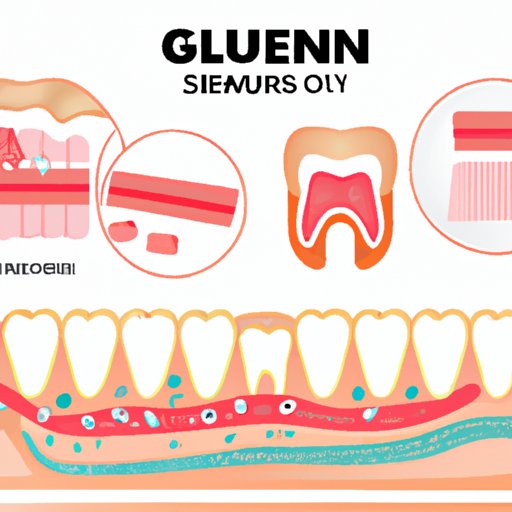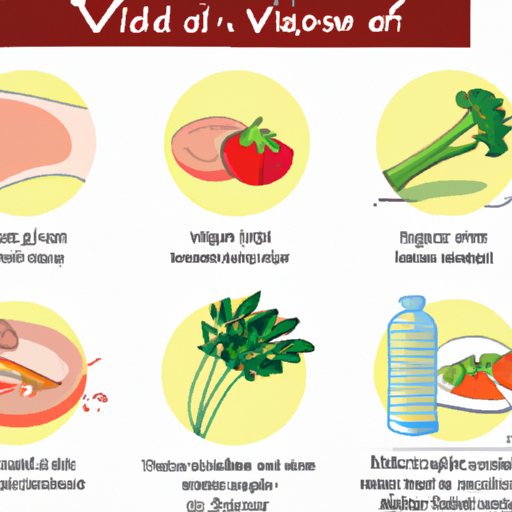
I. Introduction
Swollen gums are a common dental problem that affects individuals of all ages. While this issue is usually not considered serious, it can be painful and uncomfortable if left untreated. In this article, we will provide a comprehensive guide on how to treat swollen gums effectively. Our target audience includes individuals who are suffering from swollen gums and are seeking remedies to alleviate the problem.
II. Causes of swollen gums and how to prevent them
Several factors can contribute to the development of swollen gums, including poor oral hygiene, gum disease, and hormonal changes. To prevent swollen gums, it is recommended that individuals practice good oral hygiene habits. Brushing twice daily, flossing regularly, attending regular dental check-ups, and quitting smoking are some suggested preventative measures.
III. Home remedies to alleviate swollen gums
Home remedies can be an effective and affordable solution for swollen gums. Rinsing the mouth with saltwater, applying a turmeric paste to the gums, and using aloe vera are some popular remedies to alleviate gum inflammation. These remedies can be applied easily, and their anti-inflammatory properties help soothe swollen gums effectively.
IV. The importance of maintaining good oral hygiene habits
Proper brushing and flossing techniques are crucial for maintaining good oral hygiene, which can prevent the development of gum disease and swollen gums. Individuals should brush for two minutes, twice daily, using a fluoride toothpaste. Flossing regularly removes food particles that can become lodged between the teeth and lead to gum inflammation.
V. The benefits of using a mouthwash or dental rinse
Mouthwashes and dental rinses that contain anti-inflammatory ingredients can help alleviate gum inflammation. These products are easy to use and can be helpful in reducing bacteria that can contribute to the development of swollen gums. Recommended products include saltwater rinse, chlorhexidine rinse, and fluoride rinse.

VI. Foods that can reduce swelling
A diet consisting of foods rich in vitamin C, calcium, and leafy greens can promote healthy gums and prevent gum inflammation. Consuming fresh fruit, vegetables, and nuts can improve oral health and reduce gum swelling.
VII. Over-the-counter anti-inflammatory medications
Over-the-counter medications such as ibuprofen can help reduce inflammation and pain associated with swollen gums. However, individuals should be cautious when taking medication and follow the recommended dosage amounts to avoid any adverse side effects.
VIII. When to seek professional treatment
If swollen gums persist or worsen, professional treatment may be necessary. A dentist can help identify the root cause of the problem and offer solutions. Scaling and root planing and prescription medication can be effective in treating severe gum inflammation.
IX. Conclusion
In conclusion, swollen gums can cause discomfort and pain if left untreated. Proper oral hygiene habits, home remedies, and anti-inflammatory medications can be effective in treating swollen gums. Maintaining a healthy diet and seeking professional treatment when necessary can prevent the development of gum disease and swollen gums. By following these recommendations, individuals can protect their oral health and achieve a healthy, painless smile.




